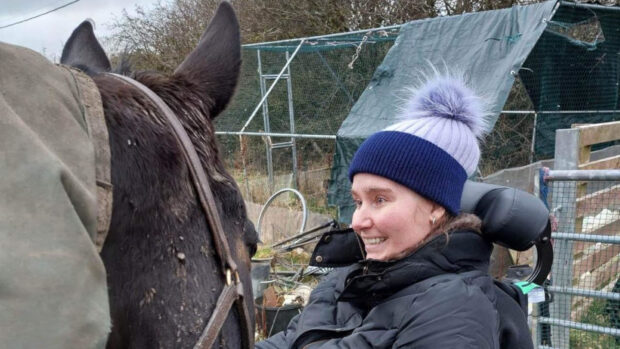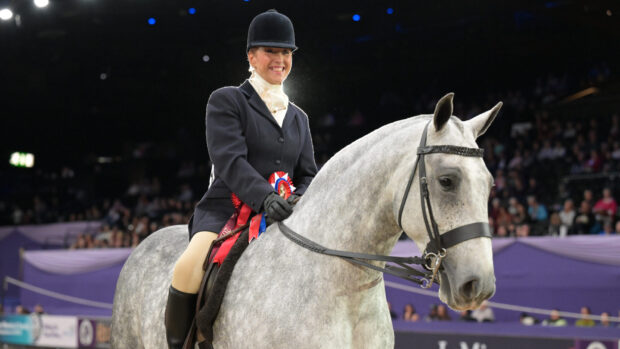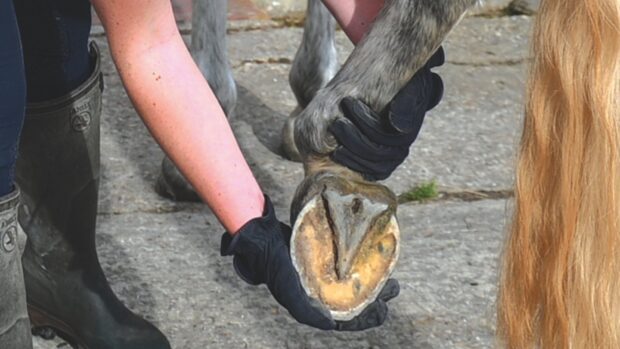A “safety net” to ensure thoroughbreds ending their racing careers receive the specialist care they need is being expanded in the coming weeks to cover their first step out of the sport.
Oxfordshire-based specialist racehorse retraining centre HEROS has been appointed as the new primary partner for British racing’s aftercare charity, Retraining of Racehorses (RoR). This new partnership means HEROS will provide care and support for horses that need it as they leave the racing industry.
It links back to a recommendation by the industry’s independent Horse Welfare Board (HWB), which launched in February 2020 with the focus of supporting all horses bred for racing from cradle to grave.
“The [HWB’s] ‘Life Well Lived’ strategy was created to ensure that during the whole lifetime of the thoroughbred, all facets of its welfare are scrutinised and where possible improved,” said HWB chairman Barry Johnson.
“This new agreed definition of racing’s responsibility means we can now expand the sport’s safety net to ensure a smooth transition out of racing for any horse bred for racing.
“This is about providing a safe space for thoroughbreds that may need additional support via an industry-backed organisation with first-class experience and facilities.”
From August, HEROS will provide care for any thoroughbred leaving racing who needs extended time and resources for his retraining or recuperation.
This is not a replacement for the many other routes trainers and owners have in place for preparing horses for their second careers, but is rather an alternative and a safety net.
Each horse will receive a full assessment and a bespoke programme in preparation for rehoming. Educational and support programmes will also be offered to anyone new to rehoming a thoroughbred.
The development follows the HWB’s 2021 aftercare funding review, which carried out a study into the management and quality of racing’s aftercare sector.
HEROS’ appointment followed a five-month pitch process, involving 60 British aftercare providers. It has rehomed more than 700 former racehorses since its launch 16 years ago and will receive additional funds to support its new role and expanded responsibilities.
“HEROS was officially launched in 2006, but thoroughbreds have always been part of my life and I have been retraining them for more than 30 years,” said HEROS chief executive and founder Grace Muir.
“I have an incredible team who are as committed as I am to their care and wellbeing. This endorsement from the industry gives HEROS the confidence to forge ahead and achieve even more with our work.
“Thoroughbreds have such a wide range of capabilities, we are fortunate to be able to offer top-class facilities to be able to retrain, rehabilitate and educate here and it’s so rewarding to see them go on to have useful, healthy, active lives after their racing careers.”
The HWB is also partnering with the University of Surrey to expand a welfare assessment tool (Animal Welfare Assessment Grid) to officially record a thoroughbred’s wellbeing on retirement (news, 13 July). This is planned to be rolled out towards the end of this year and will additionally be used to score how suited the horse would be to different jobs and flag areas for development or of concern.
The formalisation and introduction of an aftercare and retraining accreditation standard is planned to tie in with the rollout of the assessment tool
“In recent years there has been sustained growth in the demand for thoroughbreds among the wider equestrian community,” said RoR chairman Philip Freedman.
“This has been a very positive development and is in large part due to the work of RoR in providing opportunities for former racehorses across a range of disciplines and educational measures for their riders.
“However, the organic nature of this growth has led to some horses being cared for by individuals who are not always best qualified for that particular horse at that particular stage of its career. This issue was identified by the aftercare funding review group who, as part of their recommendations, advocated the introduction of a more informed approach to the assessment of horses leaving racing.
“Considerable cross-industry work has taken place since that review and these latest developments are important steps forward to establish stronger standards, structures, and systems to support thoroughbreds as they transition away from the sport.”
You might also be interested in:

Subscribe to Horse & Hound magazine today – and enjoy unlimited website access all year round

‘No horse, no sport – we all have a responsibility’: equestrian sport ‘in it together’ when it comes to horse welfare

Disqualification for excessive whip use in racing could apply from autumn

*Opinion* Love for the horse is our most powerful asset – we need to use it more

Gambling review: what is it and what does it mean for racing and the horse world?
Horse & Hound magazine, out every Thursday, is packed with all the latest news and reports, as well as interviews, specials, nostalgia, vet and training advice. Find how you can enjoy the magazine delivered to your door every week, plus options to upgrade your subscription to access our online service that brings you breaking news and reports as well as other benefits.




